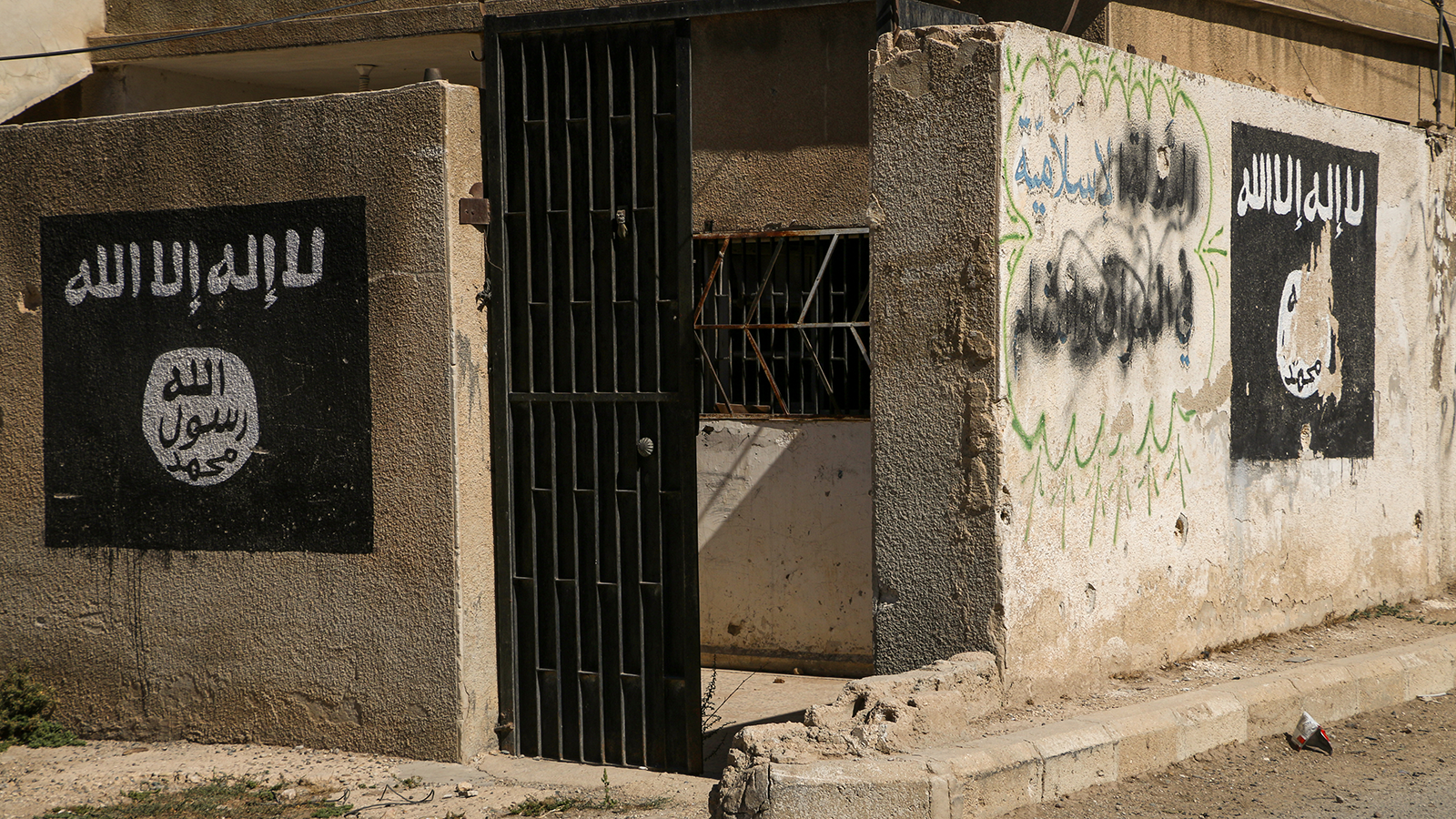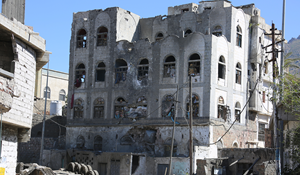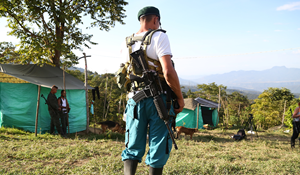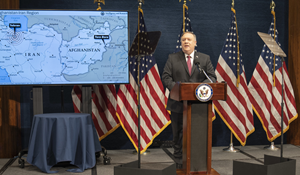By Samuel Rubenfeld
February 11, 2022
The global fight against the Islamic State of Iraq and al-Sham (ISIS) and its affiliates remains a “long-term game” with “no quick fixes,” a senior United Nations counter-terrorism official said days after the release of a semi-annual monitoring report and the death of the group’s leader.
ISIS leader Abu Ibrahim al-Hashimi al-Quraishi died earlier this month after he detonated a bomb during a raid of his compound in a neighborhood in Idlib, Syria, according to the U.S. government’s initial findings. Subsequent testimony and details from U.S. officials indicate they have backtracked a bit, however, saying they don’t know who in fact detonated the device. The operation followed months of planning and al-Quraishi was offered a chance to surrender before the detonation, according to media reports, citing interviews with witnesses.
Nevertheless, Valdimir Voronkov, the U.N. undersecretary-general for counterterrorism, warned that ISIS is known for its ability to regroup and even intensify its activities following a leader’s death. “We have learned over the past two decades that counter-terrorism is a long-term game and that there are no quick fixes,” he said, according to a U.N. statement.
Before his death, al-Quraishi had kept an extremely low profile, without a video or audio recording of him surfacing since assuming the leadership role in October 2019 in the wake of the death of Abu Bakr al-Baghdadi, according to a U.N. monitoring report covering the second half of 2021. ISIS has suffered additional leadership losses, but unnamed U.N. member states cited in the report disagree over the effect that has had on the terror group’s operations.
ISIS continues to operate as a rural insurgency in its core areas of Iraq and Syria, the U.N. monitoring report said. Idlib, where al-Quraishi was found, was seen as an important “strategic location providing limited safe haven” for ISIS, the report said. The Idlib region is under the control of Hayat Tahrir al-Sham (HTS), a group sanctioned by the U.S. and U.N. due to its affiliation with al Qaida that is also the last holdout fighting the Syrian government in a civil war.
However, in the second half of 2021, the Taliban takeover of Afghanistan was the most significant event relating to ISIS or al Qaida, as the country has the potential to become a safe haven for terror groups with ties to the region and beyond, according to the U.N. report.
“Terrorist groups enjoy greater freedom there than at any time in recent history,” the report said.
President Joe Biden on Friday signed an executive order that blocks the U.S.-based assets of Afghanistan’s central bank and splits them between humanitarian groups and victims of the Sept. 11, 2001 attacks. The order intends to keep USD 7 billion in Afghan funds out of the hands of the Taliban, which is under U.S. sanctions, according to a White House fact sheet.
The Taliban, for its part, sees the Afghan-based ISIS affiliate known as ISIS-Khorasan (ISIS-K) as its “primary kinetic threat,” given that the group aims to position itself as the “chief rejectionist force in Afghanistan,” the U.N. report said. If Afghanistan descends into chaos, some Afghan and foreign extremists may shift their allegiances to ISIS-K, according to the U.N. report.
ISIS-K controls limited Afghan territory but has shown an ability to mount sophisticated attacks, and its strength and numbers have risen recently following the release of several thousand prisoners, according to the report. The U.S. State Department this week announced a reward of up to USD 10 million for information leading to the identification or location of ISIS-K leader Sanaullah Ghafari, who was sanctioned by the U.S. in November 2021 and by the U.N. a month later.
ISIS leadership exerts sufficient control over the group’s financial reserves to allow the transfer of funds to certain affiliates abroad, including ISIS-K, which received money “in the low hundreds of thousands of dollars” after more than a year of nothing, according to the U.N. report. ISIS core has allocated at least USD 500,000 for the Afghan affiliate, the report said.
Recent assessments cited in the report pinned ISIS reserves at somewhere between USD 25 million and USD 50 million, with some suggesting it is closer to the lower amount, the report said, noting that the group is now “consistently spending more funds than it takes in monthly.”
Beyond Afghanistan, most ISIS and al Qaida affiliates have continued their advances in Africa, according to the U.N. report. ISIS and al Qaida affiliates in West Africa have made progress by exploiting local grievances, overwhelming stretched security forces and navigating complex interrelationships between armed groups, the report said.
The ISIS affiliate in the Lake Chad basin in particular has grown in strength, absorbing the followers of deceased Boko Haram leader Abubekar Shekau, the report said. In numerical terms, it is the strongest affiliate outside of the ISIS core region in Iraq and Syria, the U.N. said.
The affiliate, known as Islamic State West Africa Province (ISWAP), has sought to integrate the Boko Haram fighters, but unification has proven difficult, according to the report.
Increasing attacks in Cameroon and Niger underscore the ability of ISWAP to expand beyond Nigeria, the report said, noting that its resources may have increased due to gains in northwest Nigeria.







